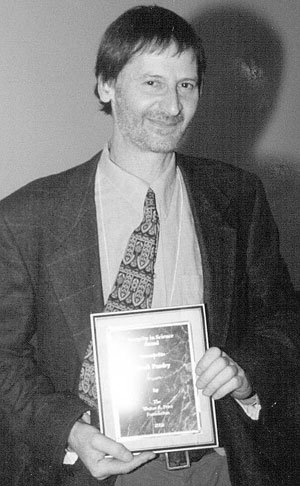
Was an English organic farmer who came to public attention in the 1980s, when he began to circulate his own theories regarding the causes of bovine spongiform encephalopathy (BSE or mad cow disease).
Purdey's interest in the disease was triggered when four cows he purchased for his farm developed the disease, though no animal raised on his farm ever contracted it. He published a number of papers in which he set down his belief that was not an infectious disease, contrary to the mainstream scientific view, but that it had an environmental cause. He suggested this cause might be Phosmet, a systemic organophosphate insecticide that was being spread along the spines of intensively farmed cows to eradicate warble fly. Purdey believed that the chemicals, derived from military nerve gases, disturbed the balance of metals in the animals' brains, giving rise to the misfolded proteins called prions that are regarded as the cause of BSE. Through the High Court, he successfully challenged the British government's compulsory warble fly eradication program, which would have compelled him to treat his own cattle with the insecticide.
In his later papers on BSE, Purdey suggested that a combination of high manganese and low copper in the soil, together with high environmental oxidizing agents, might "initiate a self-perpetuating free radical mediated neurodegenerative disease process (e.g., a TSE) in susceptible genotypes." He also argued that transmissible spongiform encephalopathies (TSEs or prion diseases) are linked to Parkinson's and Alzheimer's. His work was published in a number of minor peer-reviewed journals. He delivered lectures around the world to farmers and academics, and was invited to present his research to the British government's Phillips Inquiry into BSE. He called himself an "underground scientist" and "eco detective." He received a number of awards from New Age and organic farming organizations.